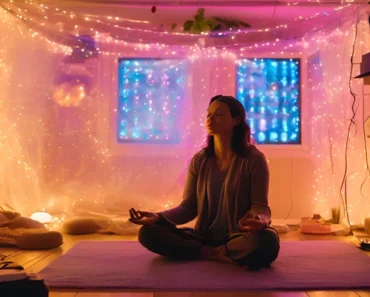TikTok Therapy: Harmful or Healing? This guide explores the burgeoning trend of mental health content on TikTok, examining its potential to destigmatize therapy and offer insights, while also highlighting critical concerns regarding misinformation and professional oversight.
The Rise of TikTok Therapy: A Double-Edged Sword
TikTok, a short-form video platform, has quickly become a global phenomenon. Beyond dance challenges and comedic skits, it has unexpectedly emerged as a significant hub for mental health content. Users, ranging from licensed therapists to individuals sharing personal experiences, post short videos offering advice, insights, and relatable narratives about various mental health topics. This trend, often dubbed TikTok Therapy, sparks a crucial debate: does it truly offer healing, or does it carry inherent dangers?
The appeal of TikTok Therapy lies in its accessibility and engaging format. Traditional therapy can be expensive, stigmatized, or hard to access. TikTok offers immediate, free content that resonates with a large, diverse audience, particularly younger generations. It has helped destigmatize mental health discussions, making complex topics feel more approachable and common. This broad reach enables conversations that might not happen elsewhere.
However, the very nature of the platform also creates significant risks. Short-form videos simplify complex issues. They often lack professional nuance or context. Misinformation can spread rapidly. Understanding both the promising potential and the serious pitfalls of TikTok Therapy is vital for anyone engaging with mental health content on social media.
The Healing Potential: Advantages of TikTok Therapy
When used thoughtfully, TikTok Therapy offers several distinct benefits that contribute positively to mental health awareness and destigmatization. These advantages highlight its potential as a supplementary resource.
Destigmatization of Mental Health: Normalizing Conversations
TikTok Therapy plays a powerful role in destigmatizing mental health issues. Seeing relatable content creators, including licensed professionals, openly discuss topics like anxiety, depression, or ADHD helps normalize these experiences. It shows individuals they are not alone in their struggles. This open dialogue breaks down traditional barriers of shame and fear, encouraging more people to acknowledge their feelings and consider seeking help.
Accessibility and Broad Reach: Support at Your Fingertips
TikTok offers unparalleled accessibility. Mental health content is free and available 24/7 to anyone with a smartphone and internet access. This removes significant barriers like cost, geographical location, and scheduling conflicts that often prevent individuals from accessing traditional therapy. For those in underserved communities or who are hesitant to seek formal help, TikTok Therapy provides an immediate, low-barrier entry point to mental health information.
Validation and Community Building: Finding Your Tribe
Many users find immense validation on TikTok Therapy. Seeing others express similar struggles creates a powerful sense of community and shared understanding. Comments sections and direct messages allow individuals to connect with peers facing similar challenges. This validation helps reduce feelings of isolation and fosters a sense of belonging, which is crucial for mental well-being. It provides a platform for mutual support.
Brief Insights and Coping Strategies: Quick Learning
TikTok Therapy offers brief, digestible insights into psychological concepts and coping strategies. These short videos can introduce users to terms like “gaslighting,” “emotional regulation,” or “boundaries.” They provide quick tips for managing stress or anxiety. This bite-sized information can serve as a starting point for self-education, sparking curiosity about mental health topics and encouraging further exploration.
The Harmful Pitfalls: Disadvantages and Risks of TikTok Therapy
Despite its positive aspects, TikTok Therapy carries significant risks that can be detrimental to mental health. The platform’s inherent design often exacerbates these dangers.
Misinformation and Oversimplification: Dangerous Shortcuts
The biggest danger of TikTok Therapy is the rapid spread of misinformation and oversimplified advice. Complex mental health conditions are often reduced to a few bullet points in a 60-second video. This can lead to self-diagnosis based on incomplete information or the adoption of ineffective or even harmful coping strategies. Qualified mental health care requires depth and nuance that short videos cannot provide.
Lack of Personalization and Professional Oversight
TikTok Therapy offers generic advice. It cannot provide personalized support tailored to an individual’s unique history, symptoms, or circumstances. A licensed therapist assesses a person’s specific needs. They adapt treatment accordingly. TikTok content creators, even if licensed, are broadcasting, not providing therapy. There is no client-therapist relationship, no confidentiality, and no professional oversight of individual interactions. This lack of personalization is a major limitation.
Ethical Concerns and Scope of Practice Violations
Some content creators, even licensed professionals, blur the lines between education and therapy. Providing specific advice or diagnosing conditions in a public forum violates ethical guidelines. This can create false expectations for viewers. The lack of privacy and confidentiality inherent in public social media interactions is also a significant ethical concern when dealing with sensitive mental health topics.
Comparison and Anxiety: Fueling Insecurity
While TikTok can build community, it also fuels social comparison. Users might compare their struggles or progress to others’, leading to feelings of inadequacy or increased anxiety. Seeing content about “perfect” mental health journeys or rapid recovery can create unrealistic expectations and worsen existing insecurities. This can be particularly harmful for individuals already struggling with self-esteem issues.
Read Also: How to Spot Depression in Online Behavior
Budgeting for Mental Health Support: TikTok Therapy vs. Professional Care Costs
Understanding the financial implications of different mental health support options is crucial. Budgeting involves weighing convenience and cost against the type and quality of care received.
Cost of TikTok Therapy (Essentially Free)
TikTok Therapy content itself costs nothing to access beyond internet data. This makes it an incredibly low-barrier resource. While some creators might offer paid workshops or resources off-platform, the core video content is free. This accessibility is a primary reason for its popularity, especially for those with no budget for mental health support.
Cost of Online Therapy Platforms (Mid-Range)
Online therapy platforms that connect users with licensed human therapists offer a mid-range price point. Sessions via video or phone often range from $60 to $150 per session. Many platforms accept insurance, which can significantly reduce the out-of-pocket cost. This option balances convenience with professional human guidance. It is a more robust alternative to free TikTok content.
Cost of Traditional In-Person Counseling (Higher End)
Traditional in-person counseling typically represents the highest cost. Sessions can range from $100 to $250 or more per hour. Factors like location, therapist experience, and specialization influence the price. While many health insurance plans offer coverage, high deductibles or limited coverage can still make it a significant financial commitment. This investment provides the most personalized and in-depth care.
Caring for Your Mental Well-being: A Holistic Approach
Regardless of the method you choose for support, consistent self-care and a holistic approach are crucial for maintaining mental well-being. This comprehensive care benefits all forms of therapeutic engagement.
Prioritize Self-Care Practices Consistently
Engage in regular self-care activities. This includes adequate sleep, a balanced diet, regular physical activity, and stress-reducing techniques like mindfulness or meditation. These foundational habits significantly impact mental resilience. They create a supportive environment for any therapeutic work you undertake. They are not a replacement for professional help but complement it.
Maintain Healthy Social Connections
Genuine human connection is vital for mental health. Nurture your relationships with friends and family. Engage in social activities. Even if you consume mental health content online, do not let it replace real-world social interaction. A strong support network outside of formal therapy complements any professional help.
Be Patient and Persistent with Your Journey
Mental health progress is rarely linear. Be patient with yourself. Understand that setbacks can occur. Persistence in your chosen therapeutic approach, combined with consistent self-care, yields long-term benefits. Celebrate small victories along the way. This enduring commitment is key to lasting well-being and recovery.
Latest Innovations: The Evolving Landscape of Digital Mental Health
The field of digital mental health is rapidly evolving, moving beyond simple content platforms to more integrated and supportive solutions. These innovations aim to bridge the gap between casual content and professional care.
AI-Enhanced Mental Wellness Apps (Not Therapy)
More sophisticated AI-powered apps are emerging. They offer personalized mood tracking, guided journaling, and evidence-based exercises (e.g., CBT, DBT prompts). These apps use AI to adapt to user input, providing a more interactive and tailored self-help experience. While they are not therapy, they empower users with tools for self-management and emotional regulation. This technology enhances self-awareness.
Hybrid Models of Care: Blending Digital and Human
The most promising innovation involves hybrid models of mental health care. This approach combines the accessibility of digital platforms with the depth of human interaction. TikTok might serve as a discovery tool, leading users to more structured online therapy platforms where they connect with licensed human therapists for personalized sessions. This allows human therapists to focus on complex cases.
Regulated Telehealth and Virtual Therapy Services
The growth of regulated telehealth services means more licensed therapists offer virtual sessions via secure platforms. These platforms adhere to strict privacy and ethical guidelines, unlike open social media. They provide a safe and effective alternative to in-person therapy, offering personalized, confidential care from qualified professionals. This increased availability makes professional help more accessible.
Making Your Final Decision: Seeking Effective Mental Health Support
The debate “TikTok Therapy: Harmful or Healing?” highlights a crucial point: choose your mental health resources wisely. Carefully weigh the pros and cons of digital content versus professional care against your individual needs, symptoms, and comfort level.
Prioritize your well-being. If you experience severe symptoms, complex issues, or are in crisis, traditional counseling with a licensed human therapist or a regulated online therapy platform is the most appropriate and safest choice. Do not delay seeking this support.
Consider TikTok Therapy as a discovery tool or a supplemental resource for general awareness and relatable content. Use it to destigmatize mental health and find community, but do not rely on it for personalized diagnosis or treatment.
Do not overlook the importance of verifying credentials of content creators. Seek out licensed professionals sharing general educational content. Be critical of advice that sounds too simple or offers quick fixes.
Remember, effective mental health support requires a comprehensive, tailored approach. When you choose a path that feels right and commit to the process, you invest in your lasting well-being and genuine healing.
Navigating Mental Health Support in the Digital Age
The phenomenon of TikTok Therapy stands as a testament to both the power and the peril of digital content in mental health. While it can offer valuable destigmatization and broad accessibility, its limitations demand careful discernment from users.
Take time to assess your needs. Explore resources critically. Remember that finding the right support is a journey, and your commitment to mental well-being is the most crucial factor.
As you navigate the landscape of mental health support, embrace a balanced approach. Your willingness to seek help and engage with appropriate resources ensures lasting positive change.
By understanding the strengths and limitations of TikTok Therapy, you empower yourself to make informed choices. You secure the support you need to truly heal and thrive in a complex world.
Frequently Asked Questions About TikTok Therapy
Is TikTok Therapy a substitute for professional mental health care?
No, TikTok Therapy is not a substitute for professional mental health care. It provides general educational content and relatable experiences, but it cannot offer personalized diagnosis, treatment, or confidential support from a licensed therapist.
What are the main benefits of TikTok Therapy?
The main benefits include destigmatizing mental health, offering broad accessibility to information, fostering a sense of community and validation, and providing brief insights into psychological concepts and coping strategies.
What are the biggest risks of TikTok Therapy?
The biggest risks include the spread of misinformation, oversimplification of complex mental health issues, lack of personalization, absence of professional oversight for individual cases, and potential for social comparison that exacerbates anxiety.
How can I tell if mental health content on TikTok is reliable?
Look for content created by licensed mental health professionals who clearly state their credentials. Check if they emphasize that their content is for educational purposes only and not a substitute for therapy. Be wary of quick fixes or sensational claims.
When should I seek professional help instead of relying on TikTok Therapy?
Seek professional help immediately if you experience severe symptoms, complex issues, persistent distress, thoughts of self-harm, or if your daily life is significantly impacted. TikTok Therapy is not appropriate for crisis situations or formal treatment.





